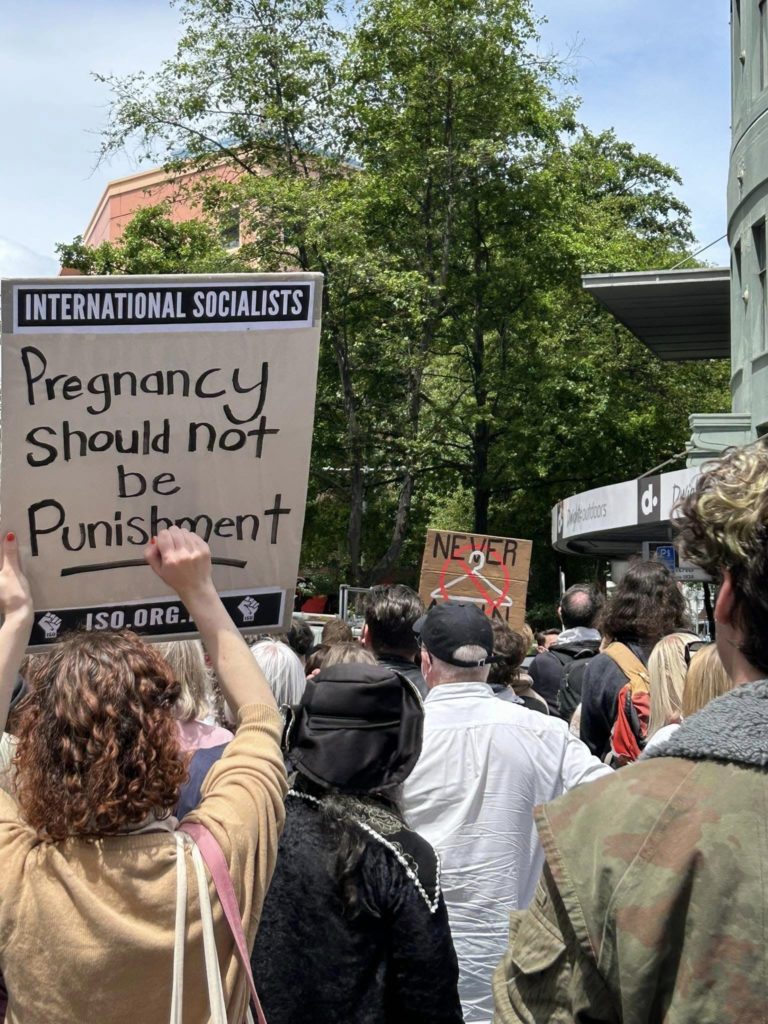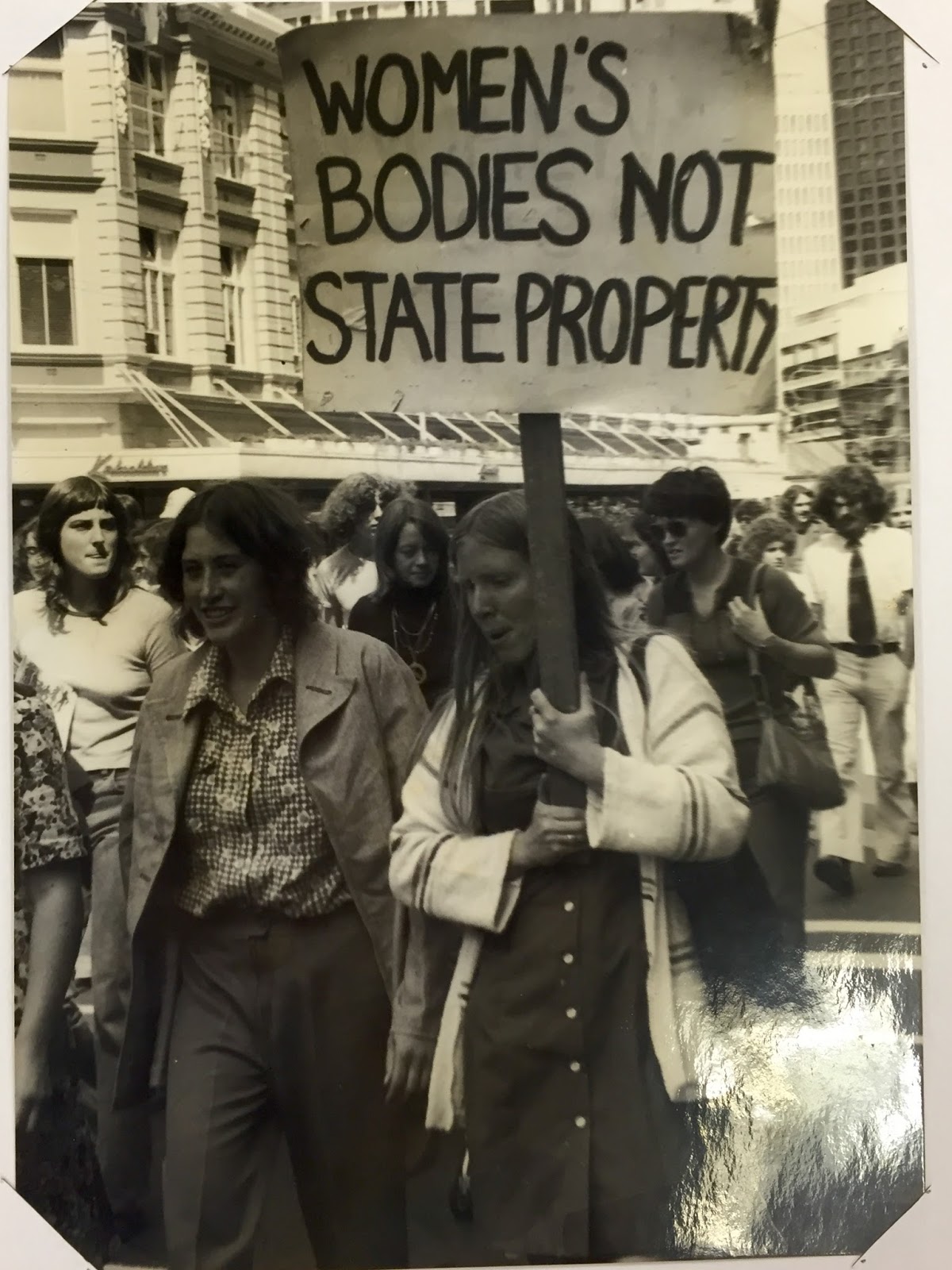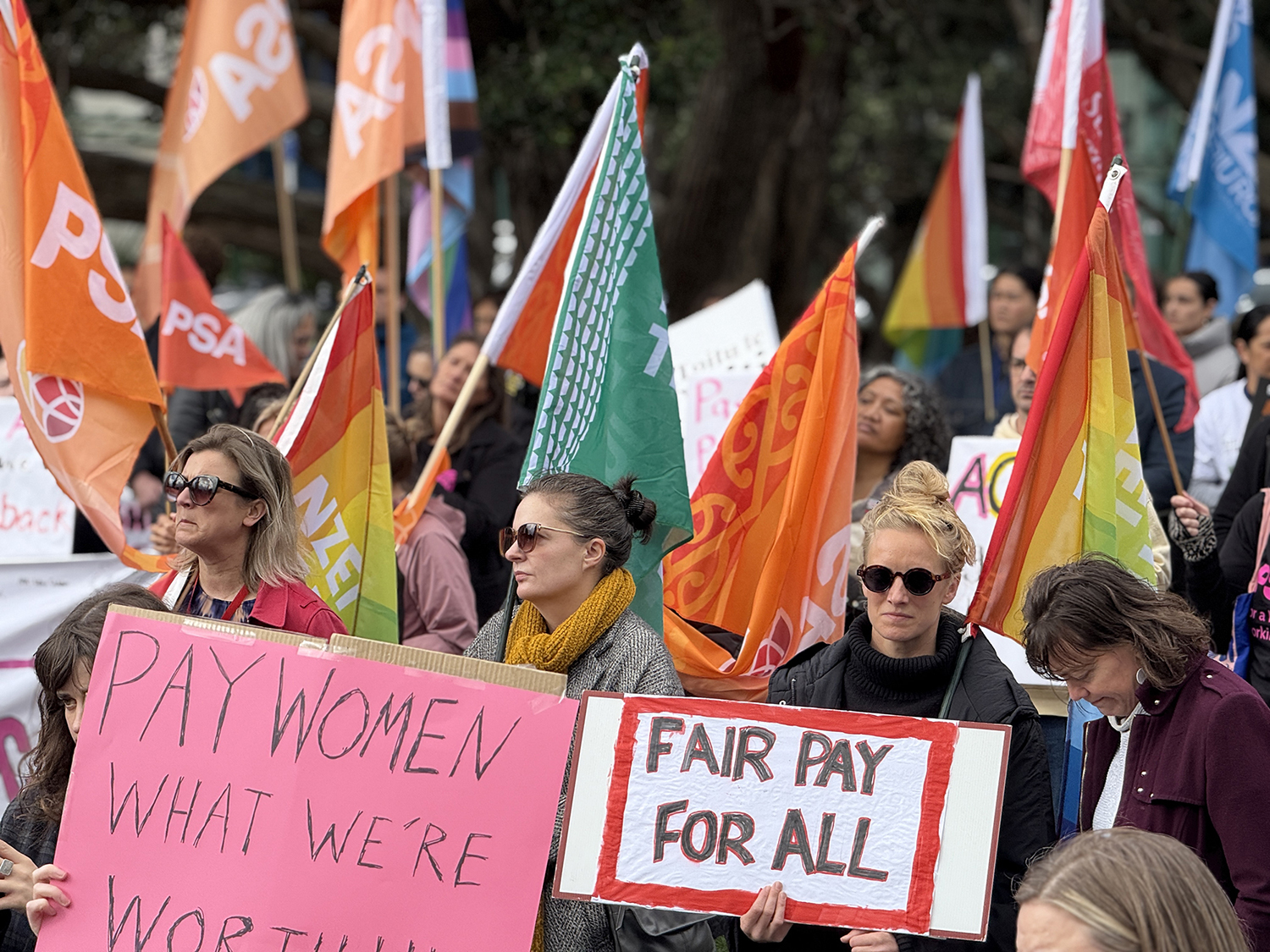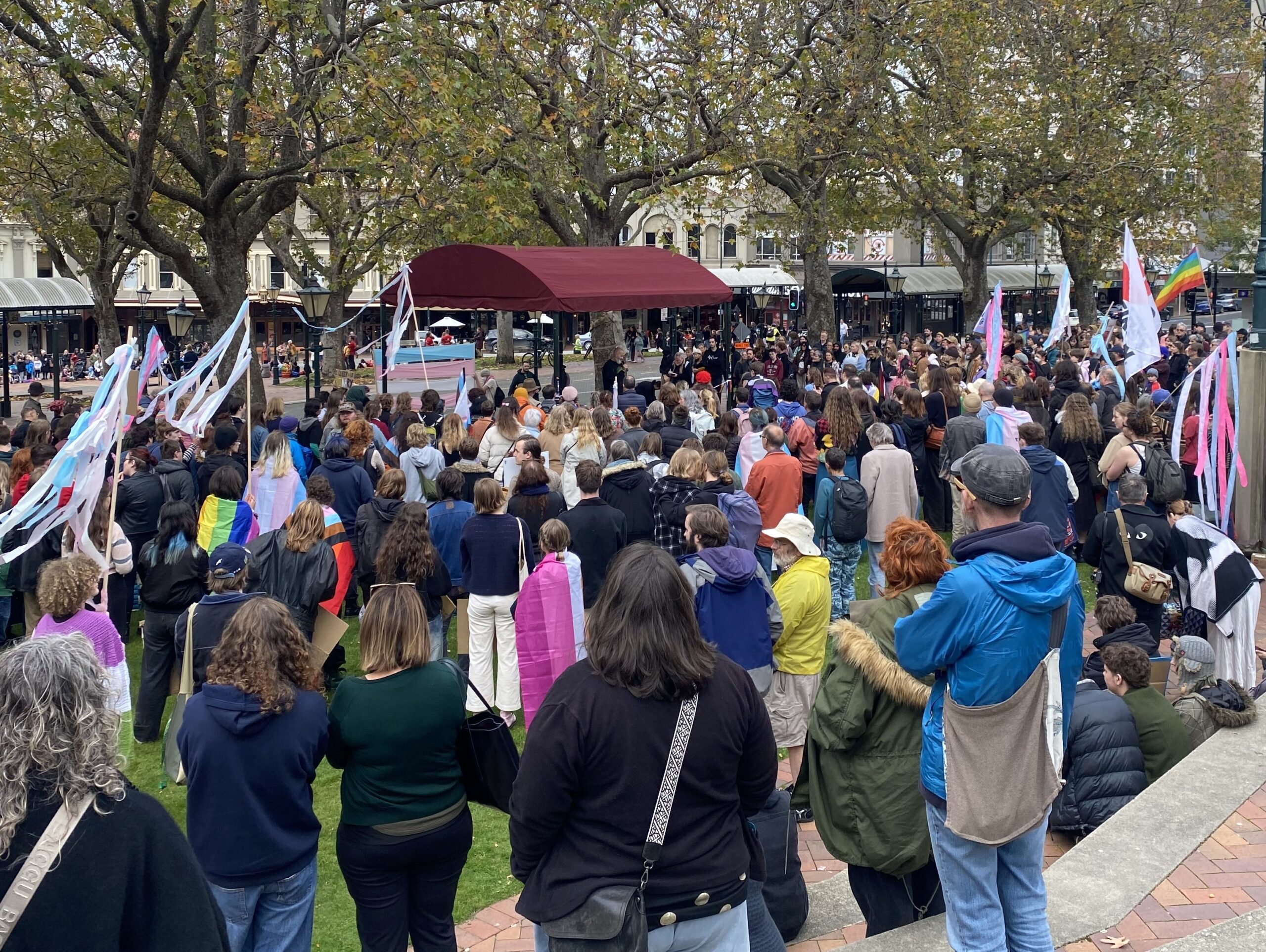Protestors marched earlier this month, on the second of December, in defence of abortion and reproductive rights in Wellington. The march, organised by Poneke Anti-Fascist Coalition, was intended to counter the anti-abortion “March for Life” which is held each year by the organisation Right to Life. The numbers on both sides were smaller than they had been at the same event last year, with approximately one hundred on the pro-abortion and perhaps five hundred on the anti-abortion side (it is common for the anti-abortion forces to mobilise greater numbers for this march as it is one of the main events on their calendar). Regardless of numbers, it remains important to counter anti-abortion forces when they rally. This year the issue has taken on particular significance given the anti-abortion presence within the newly elected right-wing government. While Prime Minister Christopher Luxon insists that he does not plan to re-criminalise abortion, he is known to personally hold anti-abortion views, as do others within his government. As the coalition agreement with New Zealand First targets sex education in schools and signals regressive attitudes towards sexuality and gender identity, working people have a right to feel concerned about the security of our reproductive rights under the new government. Anti-abortion forces will certainly be seeing this as an opportunity to push their agenda.
In August, prior to the election, Luxon stated that he would sooner resign than change abortion access, saying that “there’ll be no change to any of our abortion laws, funding or access” if he was elected. It is worth noting that in the same interview Luxon ruled out working with New Zealand First and the ACT party as coalition partners. This situation, he said, would create a “coalition of cuts, chaos and confusion” holding “a compilation of views I think would alienate large sections of society.” Clearly statements made prior to elections do not always hold up after the fact, but Luxon does have good reason to want to avoid the issue of abortion. As well as having to contend with opposition from some of his own MPs and from their coalition partner ACT (who have traditionally supported abortion access on libertarian grounds), he would have to answer to the large numbers of New Zealanders who are in favour of legal abortion. According to the Gender Attitudes Survey conducted by the National Council of Women, in 2017 66% supported the right of people to choose abortion, and in 2021 (after the removal of abortion from the Crimes Act) this had climbed to 74%.
Nonetheless, there are forces within the new government that would certainly like to see access to abortion curtailed. At Saturday’s rally, a speaker from Abortion Law Reform Association of New Zealand (ALRANZ) named some of the current Members of Parliament known to have anti-abortion views. The ALRANZ website also has a handy rundown of National MP’s stances on abortion issues. It shows that a concerning number of National list MPs voted against the legalisation of abortion, against safe-zones around abortion clinics, or against both. Shane Reti, now Minister for Health, is one of those who voted against abortion legalisation. Simon O’Connor, MP for Tāmaki, caused controversy last year when he made a social media post celebrating the overturning of Roe vs. Wade in the USA. Luxon himself made a statement in 2021 indicating that he believed abortion was tantamount to murder. New Zealand First raised issues with abortion legalisation legislation in 2020 when coalition with Labour. Their MP Darroch Ball tried to amend the legalisation bill to make it conditional on a public referendum. When this attempt failed, with only 19 votes in support and 100 against, New Zealand First MPs withdrew their support for the bill. Also concerning, New Zealand First’s coalition agreement with the National Party includes the “removal and replacement of gender, sexuality and relationship-based education guidelines” from schools. This seems to be primarily intended as part of an attack on transgender people, but it also poses a threat to effective education about sexuality, reproductive health, abortion and contraception. If they are not able to revoke New Zealanders’ access to safe legal abortion, this government is at the very least unlikely to advance or protect it.
Another speaker at this weekends’ pro-abortion rally spoke about the connection between abortion rights and trans rights. They highlighted the fact that while abortion is undeniably a crucial issue for women, it is not only women who need to access abortions, but also transgender and intersex people who do not identify as women. More than this, the fight for abortion rights is part of a broader fight for bodily autonomy and sexual and reproductive freedom. A speaker from the Aotearoa Sex Workers’ Collective made similar points, outlining the ways that stigma against both abortion and sex work had negatively impacted their life. In the face of an emboldened reactionary right in New Zealand, which is targeting trans people in particular and is sometimes appropriating feminist language or posing as protectors of the “rights of women,” it is worth emphasising that trans people had a very visible and active role in in the recent fight for the full legalisation of abortion, including active campaigning on the part of people who were not at risk of unwanted pregnancies themselves but who understood the vital importance of solidarity in this issue.
The overturning of Roe vs. Wade in the USA is still fresh in the minds of many. At the time that this law was being overturned, we held a public talk on the topic at a meeting of the Whanganui-a-Tara branch of the International Socialist Organisation. You can hear the audio of this talk on our youtube channel. In this talk a vision of sexual liberation is presented, of which abortion rights are one key part:
What I mean by sexual liberation is the right to reproductive autonomy. The freedom to decide how we relate to ourselves and each other sexually. The right to form families and relationships on our own terms. The right to express ourselves, and freedom from discrimination based on gender, sexuality, family status or reproductive physiology.
Sexual liberation is a vision we should keep in mind as we wage struggle against the right in the coming months. We are fighting not just an ideological battle against those openly proclaiming themselves as enemies of sexual and reproductive freedoms, but a fight against material attacks that would make these freedoms harder to realise in practice. Cuts to services, the repeal of the Fair Pay Agreements, attacks on beneficiaries and renters; all of these attacks and others would make life harder and less free for women, for gender minorities, for parents, for whānau and children. The flipside of this is that the fight to defend and extend these rights gives us as workers and students the opportunity to exercise solidarity, to make alliances, and to bring together the forces that have the power to change society for the better.
Read More:
A Socialist Case for Abortion Rights
Abortion (lack of) Rights (describing the situation when abortion rights were still in the Crimes Act)
The Battle for Abortion Rights









